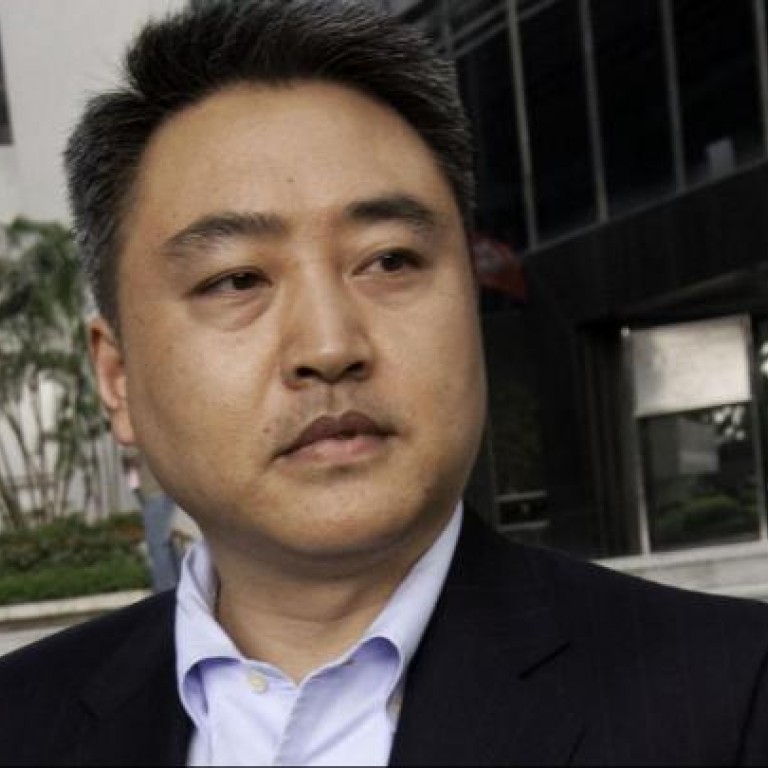
Hong Kong appeal court slashes fine for inside trader Du Jun
Judgment cuts penalty by more than 90 per cent so more funds can be used to compensate victims of former banker's illegal dealings
Hong Kong's biggest insider trader and former Morgan Stanley managing director Du Jun lost his appeal against his conviction but had his jail term cut and fine sharply reduced.

This is so that Du will have the money to pay the victims of his insider dealings in 2007.
Under the Securities and Futures Ordinance, the Securities and Futures Commission (SFC) can seek a court order to require those who have committed misconduct to compensate investors who suffered from it.
"Given that the objective of these fines is to ensure that profit should not be made from wrongdoing", the judgment said, it would be appropriate to reduce the fine to allow the SFC to proceed on behalf of investors.
The appeal judges released their written judgment yesterday, upholding Du's conviction after finding a host of evidence to support it.
The court agreed, however, to reduce his sentence to six years in prison from seven. It remains the toughest sentence handed down in the city for insider trading.
In late 2006 and early 2007, Du was managing director of Morgan Stanley and involved in helping a client, Citic Resources, issue bonds to buy a Kazakhstan oilfield and to carry out oil price hedging. Du received e-mails that were sent to a few bankers in early 2007 to update them about the deals. Between February and April 2007, he bought Citic Resources shares nine times for a total of HK$87.1 million, using his savings and HK$50 million in borrowed cash.
When the deals were announced in May 2007, the firm's share price rose sharply, and Du made HK$23.3 million in profit. A month later, Morgan Stanley learned of his trading activity, sacked him and reported the case to the SFC.
Du went to live in Beijing for a year and was arrested in 2008 when he returned to Hong Kong.
At the appeal, Du's lawyer, John Griffiths, argued that Du's trading was based not on the information in the e-mails but on his own research.
Stock's judgment said, however, that Du had no evidence of his own research on the stock.
His trading record going back to 2003 showed he had invested in only a few stocks but never in Citic Resources. Du first traded Citic Resources shares on February 15, 2007, the same day he read an e-mail about the deal.
Stock agreed to reduce the fine so more money could be used to pay back investors.
After police arrested Du in 2008, the SFC obtained a court order to freeze HK$46.59 million of his assets to make sure he had the money to pay back investors who had suffered from his insider trading.
But the frozen funds dwindled to HK$7.5 million, after Du used HK$23.3 million to pay the fine to the government and spent millions on legal fees.
The SFC issued a statement last night saying it would now apply to have the difference in the amount of the fine paid back into the frozen funds in readiness to pay the investors.

